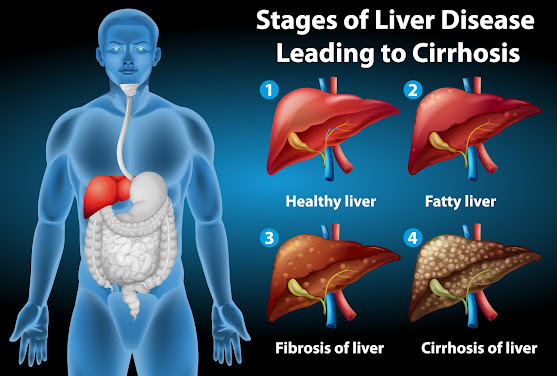What is hepatology?
Hepatology is a medical subspecialty that focuses on the
liver, gallbladder, bile ducts, and pancreas. A hepatologist is a physician who
specializes in the diagnosis and treatment of liver diseases.
The liver
is a vital organ that performs many important functions, including:
·
Metabolism
of nutrients
·
Detoxification
of the blood
·
Production
of bile
·
Storage
of blood
·
Regulation
of hormones
The gallbladder is a small, pear-shaped
organ that stores bile, which is a fluid that helps to digest fats. The bile
ducts are a system of tubes that carry bile from the liver to the small
intestine. The pancreas is a large gland that produces digestive enzymes and
hormones.
Hepatologists diagnose and treat a wide range of liver
diseases, including:
·
Hepatitis
·
Cirrhosis
·
Liver
cancer
·
Fatty
liver disease
·
Gallbladder
disease
·
Pancreatitis
Hepatologists
may also perform liver transplants.
A liver transplant is a surgery to replace a diseased liver with a healthy
liver from a donor.
If you are
experiencing any of the following symptoms, you should see a hepatologist:
·
Fatigue
·
Loss
of appetite
·
Weight
loss
·
Nausea
·
Vomiting
·
Abdominal
pain
·
Jaundice
·
Dark
urine
·
Light-colored
stools
·
Easy
bruising
·
Bleeding
gums
If you have
a family history of liver disease, you should also see a hepatologist for
regular checkups.
Hepatology is a complex and challenging field of
medicine. Hepatologists are highly trained doctors who are dedicated to
providing the best possible care for their patients. Consult the best hepatologist in Indore for Hepatology
treatment.
Here are
some additional details about the liver and its functions:
·
The
liver is the largest internal organ in the human body. It is located in the
upper right abdomen, below the diaphragm.
·
The
liver is made up of two main lobes: the right lobe and the left lobe.
·
The
liver is responsible for many important functions, including:
Metabolism of nutrients: The liver breaks down
carbohydrates, proteins, and fats into smaller molecules that can be used by
the body for energy.
Detoxification of the blood: The liver removes harmful
substances from the blood, such as alcohol, drugs, and toxins.
Production of bile: Bile is a fluid that helps to digest fats.
Storage of blood: The liver stores blood that can be released
into the bloodstream when needed.
Regulation of hormones: The liver produces and stores
hormones that help to regulate metabolism, blood clotting, and immune function.
Liver diseases can be caused by a variety of
factors, including:
·
Viral
infections, such as hepatitis A, hepatitis B, and hepatitis C
·
Alcohol
abuse
·
Fatty
liver disease
·
Cirrhosis
·
Liver
cancer
If you have
a liver problem, you should get Hepatitis treatment in Indore. Hepatologists are doctors who specialize in
the diagnosis and treatment of liver ailments. They can give you with the
finest treatment available and assist you in managing your illness.




Comments
Post a Comment